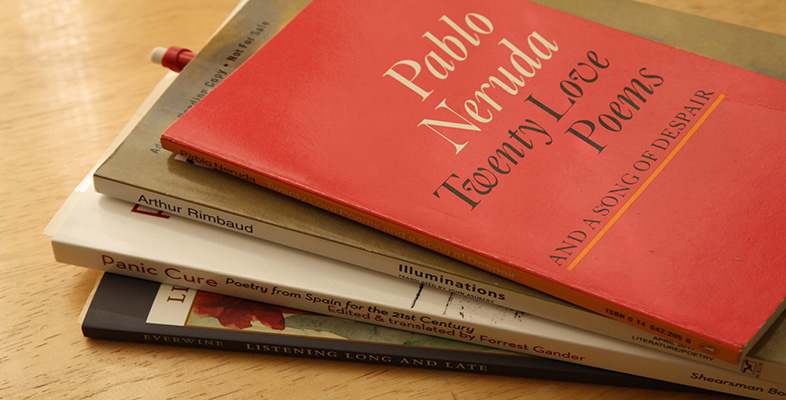5.2 Free verse
Although we can’t make rules about what constitutes a poem, we can see that even when writing free verse, where lines and line-breaks may be irregular, form is still important. Free verse still makes use of technical effects: rhythms, grammatical structures, sound effects, etc. Also, it invariably still makes grammatical sense. Free verse, with its infinite elasticity, can recreate form anew in each poem, inventing a one-off organising principle which explains that particular poem.
Too much freedom, though, can be both exciting and nerve-wracking. Writing less formally, says the poet Hugo Williams, gives the illusion of helplessness, of being out of control (Williams, 2003). That is one of its characteristics, but this doesn’t mean the writer actually is either helpless or out of control while they are writing it. Some people have misconceptions about free verse, or open-form poems, and see them as less rigorous. Peter Sansom puts another slant on this idea: ‘Writing free verse is “easier” than using a fixed form, in that it takes less effort to write bad free verse than a bad villanelle’ (Sansom, 1994, p. 83).
Activity 11
Find two or three sentences of prose from a book, newspaper or magazine. Now transform this prose into poetry, by inserting line-breaks in the text in order to highlight whatever you consider most important or interesting. A line can be as short or as long as you want. You can change the original order of the sentences, but not the order of the words of any one sentence. As a mercy, you can repeat one line once. You are allowed to cut out words, but not add any.
One of the lines, or a word from one of the lines, could be the title.
Order the lines to direct the reader’s attention.
Does any particular line immediately suggest itself as an opening or final line?
What strikes you as the most important section? This should be your focus. Let the words tell you what the poem is about.
Answer
Space around a word or phrase highlights or emphasises its meaning. Line-lengths can vary. Why not have a one-word line? The next line might be much longer. The brevity or length of a line should correspond to its meaning. Analyse your motives for line-breaks. This way, you can discover something about words, about poetry, about your own thought processes and imagination.
